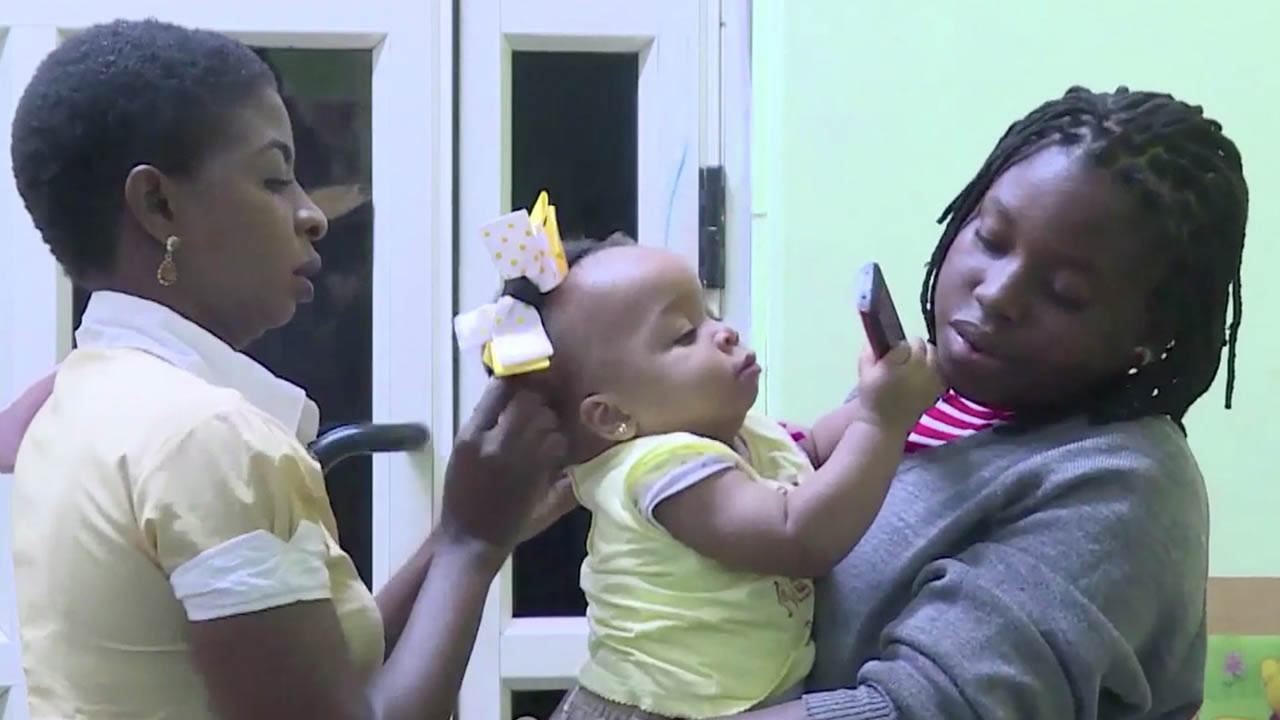
Culture
10:54, 19-Aug-2017
Nigeria’s government urged to enforce mandatory breastfeeding
By CGTN Africa

Laboratory Scientist Kosi Ugboaja is resuming work for the day – not without her nine-month-old daughter Kamara.
For the past 3 years, she has worked at the Institute of Human Virology Nigeria (IHVN) – an organization that affords her the opportunity of working and taking care of Kamara.
The organization has a policy of putting families into consideration with providing a crèche for nursing mothers here.
"Since she's here all I need to do is to time my work, time the time I go to the crèche to feed her. There's no vacuum between me and my baby. I'm not missing anything. I'm enjoying the whole motherhood with my job still intact." Ugboaja who is a mother said.
For several mothers like Kosi who have had their kids pass through the crèche here, it's been a rewarding experience.
Not only have they formed a bond with their children, it's also been able to save them quite a lot from the purchase of infant formulas and cost of treatment in hospitals.
Nigeria does not have a policy on breastfeeding in work places, so initiatives like this one are purely discretional and hard to come by.
Breastfeeding is fast being recognized as one of the best buys in global health to save lives. The UN children's agency, UNICEF has been pushing for an increase in breastfeeding worldwide.
Only 17 percent of babies in Nigeria are breastfed exclusively between 0 to 5 months – and that's by far below the UN global target of 50 percent. Now there are growing concerns about the economic cost of not breastfeeding on Human Capital Development and Health systems in Nigeria.
"A child that is Breastfed right from birth has the first immunization – first antibodies that would be able to enable that child to fight common infections within. Talk of diarrhea would be far removed from the child. Pneumonia would be far and these are things that are costed amount to several billions of Naira or several millions of dollars in Nigeria." Said UNICEF nutritionist Bamidele Omotola.
One of the key findings here is that optimal breastfeeding could prevent the death of more than 103,000 children per year.
Nigeria could also save as much as 22 million US dollars in healthcare system treatment costs related to inadequate breastfeeding.

SITEMAP
Copyright © 2018 CGTN. Beijing ICP prepared NO.16065310-3
Copyright © 2018 CGTN. Beijing ICP prepared NO.16065310-3